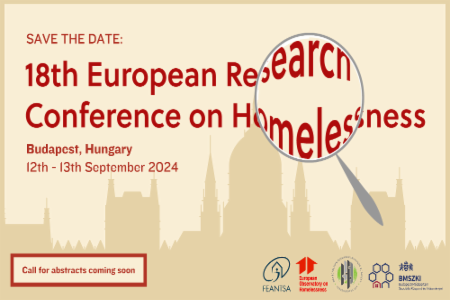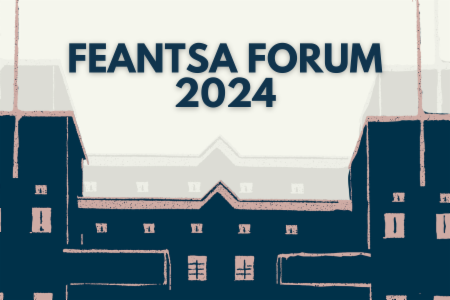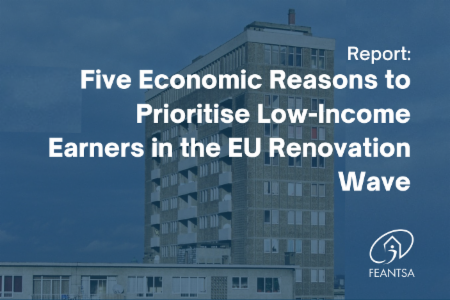Street Support and Public Nuisance
FEANTSA is a partner in an Erasmus+ project which focuses on how to foster the social inclusion of people who are often accused of being a public nuisance due to the misuse of drugs or alcohol.
The coordinator of the project is the Regenboeg Group (NL), and the other partners are: Fixpunkt Berlin (DE), Simon Community Cork (IRE), Spolecnost Podané Ruce Brno (CZ) and Comite Ciudadano Anti-Sida Valencia (ES).
Visit the Street Support website
Contact person: Ruth Kasper
European EXCHANGE on HEALTH & HOMELESSNESS - June 24 - 25, 2019, Brussels
The European multiplier event was a big success in bringing together service providers in the area of housing, health and harm reduction, peers and experts by lived experience, researchers and local policy makers to discuss and promote effective strategies for integrated care and service provision for people who experience(d) homelessness and use drugs and/or alcohol.
The event report provides a summary of the event and discussions and is now available as well as the presentations of speakers (see download section on the right). Pictures are available on the event website.
The exchange brought together 60 European experts from 10 different countries, including service providers in the area of housing, health and harm reduction, peers and experts by lived experience, researchers and local policy makers. Main aim of the meeting was to promote effective strategies for integrated care and service provision, by particularly focusing on the challenges faced by marginalised people with complex needs, including homelessness, alcohol and drug addiction, social isolation and stigma, mental health problems, criminalisation, debts, loneliness and more. The programme and the discussions during the meeting were based on the objectives, activities and results of the Street Support Project.
The Exchange addressed the challenges faced by many European cities and towns to provide public spaces for everybody, including marginalized social groups such as people experiencing homelessness and people using drugs/alcohol by sharing experiences and good practice examples from different European countries. The results of the Street Support Project were shared and discussed with the participants during interactive plenary and workshop sessions. The workshops were dedicated to four key issues when it comes to implementing effective strategies for health and homelessness: outreach and peer work/participation, mental health support and harm reduction within housing-led programmes. The workshops allowed participants to exchange with good practice organizations, learn from them and share their experiences from their local contexts.
GOOD PRACTICE COLLECTION NOW AVAILABLE
The good practice collection aims at making a substantial contribution to improving current service provision for people who use drugs and/or alcohol in public spaces. The collection addresses social services, including social entrepreneurs and adult trainers, municipalities and local governments. Service providers and policy makers can learn about concrete best practice examples which promote the social re-inclusion of people in a situation of homelessness who use alcohol and/or drugs as well as of other marginalised groups who loiter in the street and cause alcoholor drug-related nuisance.
The Good Practice Collection features projects and programmes which provide different types of support services such as work and training activities or another meaningful occupation as means of social inclusion, housing-led projects/programmes, community-based work, peer support or user-led services, harm reduction services and low-threshold drug-related services as well as mobile services, and, last but not least, advocacy and awareness raising focused projects.
PUBLICATION ASSESSMENT REPORT
Check out the assessment report Local Strategies Targeting Alcohol and Drug Users in the Public Space - Public Order versus Social Inclusion. The report assesses current nuisance-related strategies in different Member States and identifies characteristics of effective inclusive strategies. A key feature of succcessful strategies is their 2-fold positive effect: they support people who live in the street and avoid (further) exclusion while contributing to a reduction of public nuisance.





